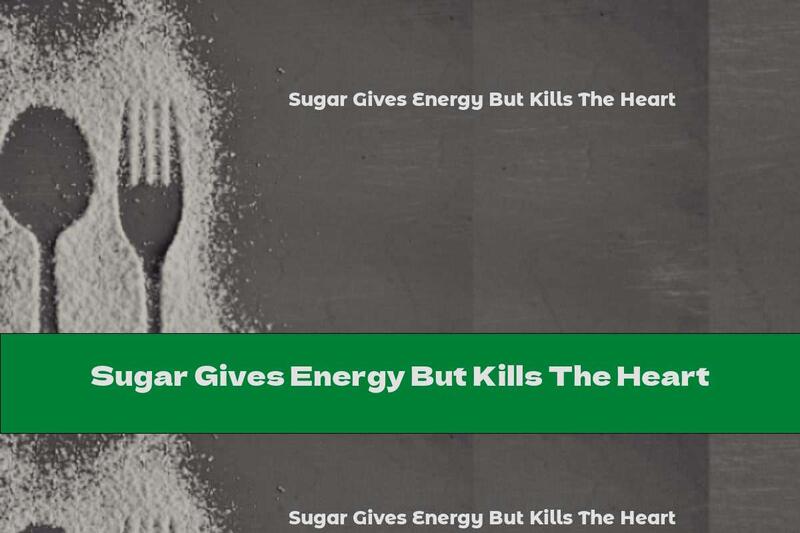Sugar Gives Energy But Kills The Heart
 Author: Mark Velov
Time for reading: ~1
minutes
Last Updated:
August 08, 2022
Author: Mark Velov
Time for reading: ~1
minutes
Last Updated:
August 08, 2022

Sugar is added to many different foods - pastries, biscuits, chocolate, some carbonated drinks and juices.
Consumption of too many sugary drinks and foods can increase the risk of heart attack , according to a large study in the United States. Sugar can lead to weight gain , which harms the heart .
The study looked at data on sugar consumption among tens of thousands of people in the United States, as well as fatalities due to heart problems . There is a strong link between the amount of sugar consumed and the risks to cardiovascular health.
In people who get a quarter of their daily calories from added sugar, the risk of death from cardiovascular disease is more than three times higher. That's according to researchers at the Atlanta Centers for Disease Control and Prevention.
The World Health Organization recommends that the added sugar should not exceed 10% of the total caloric intake - 50 g for women and 70 g for men.
Sugar is added to many different foods - pastries, biscuits, chocolate, some carbonated drinks and juices. We have to look at the labels of the products, they often indicate the amount of sugar, experts appeal.
Foods with a very high amount of sugar contain 22.5 g of sugar per 100 g, and the low content is 5 g or less per 100 g.
Experts explain that sugar in itself is not harmful - it is needed for the body 's energy needs , but when consumed excessively, it contributes to weight gain and can contribute to cardiovascular disease .
Related Articles
- Understanding Energy Balance in Nutrition: A Comprehensive Guide
- Understanding Energy Balance in Nutrition: Tips for Achieving a Healthy Lifestyle
- Nutritional Benefits of Beef Heart: A Complete Guide
- Carbs to Sugar Conversion: Understanding Types of Carbohydrates and Their Impact
- The Impact of Coca-Cola on Nutrition: Caloric Content, Blood Sugar Levels, and More